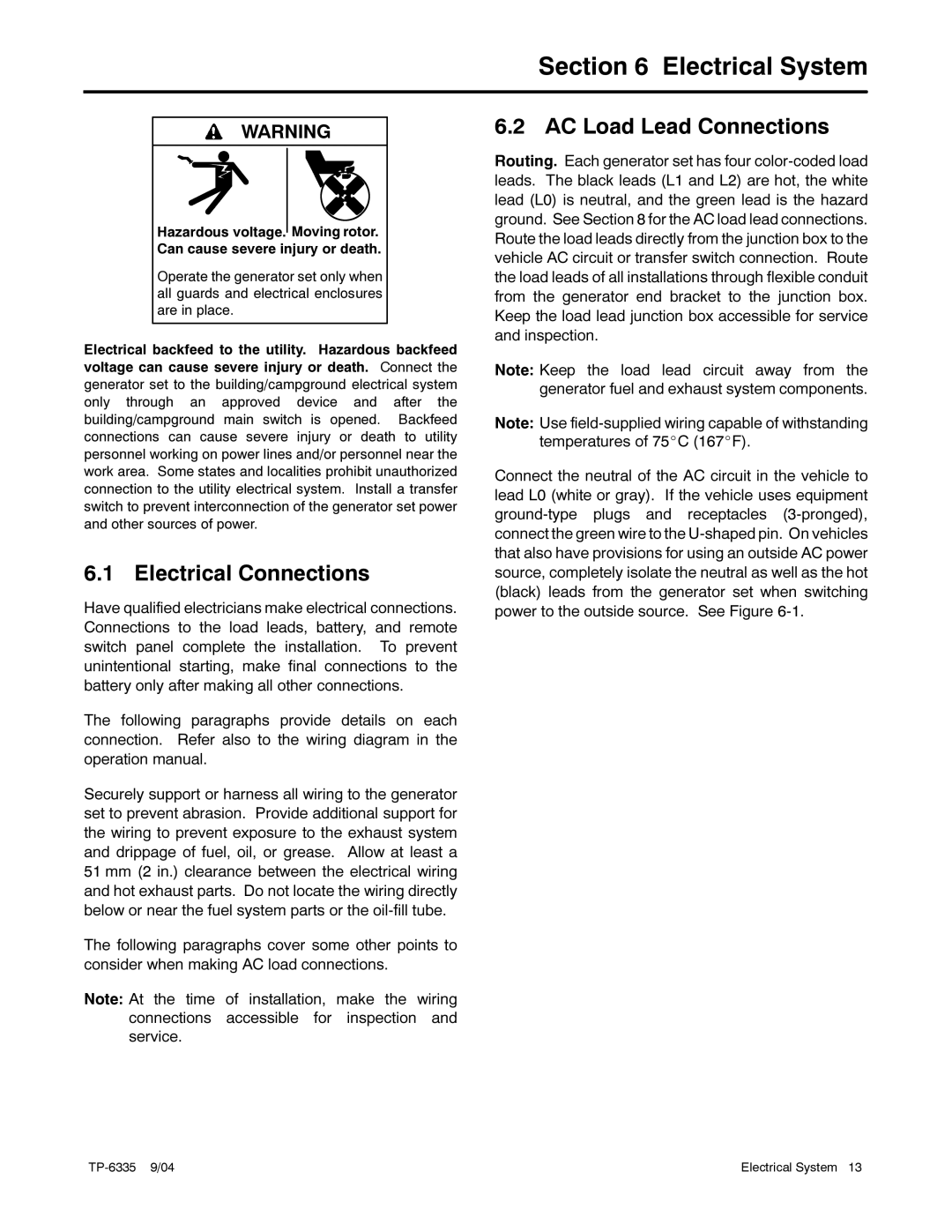
Section 6 Electrical System
WARNING
Hazardous voltage. Moving rotor.
Can cause severe injury or death.
Operate the generator set only when all guards and electrical enclosures are in place.
Electrical backfeed to the utility. Hazardous backfeed voltage can cause severe injury or death. Connect the generator set to the building/campground electrical system only through an approved device and after the building/campground main switch is opened. Backfeed connections can cause severe injury or death to utility personnel working on power lines and/or personnel near the work area. Some states and localities prohibit unauthorized connection to the utility electrical system. Install a transfer switch to prevent interconnection of the generator set power and other sources of power.
6.1 Electrical Connections
Have qualified electricians make electrical connections. Connections to the load leads, battery, and remote switch panel complete the installation. To prevent unintentional starting, make final connections to the battery only after making all other connections.
The following paragraphs provide details on each connection. Refer also to the wiring diagram in the operation manual.
Securely support or harness all wiring to the generator set to prevent abrasion. Provide additional support for the wiring to prevent exposure to the exhaust system and drippage of fuel, oil, or grease. Allow at least a 51 mm (2 in.) clearance between the electrical wiring and hot exhaust parts. Do not locate the wiring directly below or near the fuel system parts or the
The following paragraphs cover some other points to consider when making AC load connections.
Note: At the time of installation, make the wiring connections accessible for inspection and service.
6.2 AC Load Lead Connections
Routing. Each generator set has four
Note: Keep the load lead circuit away from the generator fuel and exhaust system components.
Note: Use
Connect the neutral of the AC circuit in the vehicle to lead L0 (white or gray). If the vehicle uses equipment
Electrical System 13 |
